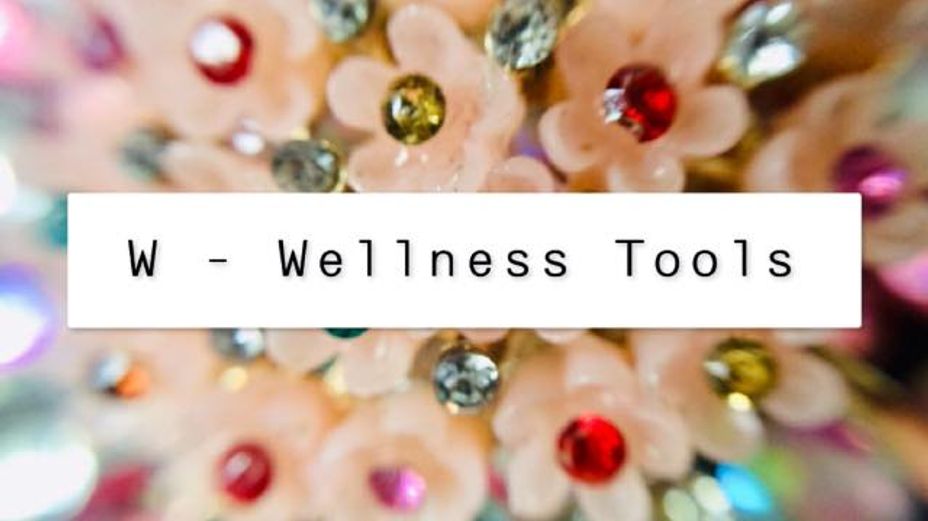W is for wellness tools.
***Trigger warning***
Drugs/alcohol/medication usage, stress, PTSD, health care professionals, mental health and personal experience.
Wellness is a state of complete physical, mental and social wellbeing. There are 5 main types of wellness:
* Physical - to maintain a quality of life without undue stress or fatigue.
* Social - establishing and maintaining positive relationships.
* Emotional - understanding of oneself and coping with life’s challenges.
* Spiritual - establishing and maintaining a sense of peace and harmony.
* Intellectual - being open to new ideas/experiences and the application thereof.
(As well as 2 additional types; occupational - a sense of fulfilment and balance in one’s chosen career. And environmental - taking responsibility for the world around us).
Wellness tools are used to stay well and help relieve symptoms. These can be used at the onset of symptoms, to prevent future symptoms or to maintain a feeling of wellbeing. A past, present and future approach - basically; keep your wellness toolbox handy whenever and wherever you are.
Examples of wellness tools are:
* Talking to a friend/family or healthcare professional.
* Counselling (including; attending a support group/peer counselling or exchange listening).
* Focusing or relaxation/stress reduction exercises, such as; meditation, journaling, affirmation exercises or guided imagery.
* Diet and exercise considerations.
* Using a light box or hot/cold packs.
* Extra rest; taking time off responsibilities (at work/home).
* Taking medications, vitamins or herbal supplements.
* Getting a second opinion/medication check.
* Doing something “normal”/routine based (eg. wash your hair, tidy up, go to work etc).
* Calling/texting a hot line/support line.
* Looking through old photos/scrapbooks etc.
* Making a list of accomplishments/things that are “good” about yourself/you are proud of etc.
* Taking a warm bath, reading, listening to music, or creating music/art.
* Avoiding stimulants, eg: drugs, alcohol, caffeine, sugar.
* Avoiding certain people/places that may be triggering, overtiring or unsupportive.
The tools I have in my own personal wellness toolbox are; surrounding myself with positive and caring people, making myself laugh, doing things for others and most importantly for me - focusing on and appreciating what is happening right here and now and seeing the positive moments in each day.
Questions: what wellness tools have you found work for you? Do you have a preferred author, artist or musician for wellness?
#mentalHealth #mentalwellness #physicalwellness #emotionalWellbeing #wellnessToolbox #wellnesstools #wellness #Wellbeing #SCUFF #ScarCoverUpFreedomFund
(References: psych central, Pinterest, google, NHS Occupational Health.)

